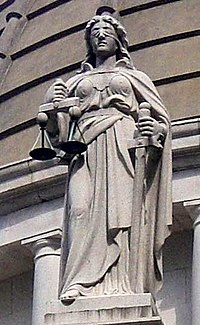Yesterday turned out to be the final States Sitting for 18 Members, myself included. I don’t think it ever was intended to be but for the first time in recent history, the Agenda which included the Budget was completed in a matter of hours rather than days.
The Agenda was not really completed because it included Daniel Wimberley’s proposition P169/2011. Unfortunately because of a recent amendment to Standing Orders which now requires a four and not a two week lodging period, his proposition which was lodged on 12th October could not be debated until today.
Members were left with three choices. One, go home at 440pm which would deny the opportunity of debating the proposition. Two, adjourn and debate the matter this morning as it had already been agreed that Members would attend at for the final group photograph, or three, debate the matter by agreeing to reduce the lodging period as per Standing Orders Article 26 (7).
Daniel proposed that Standing Orders be lifted to allow for his proposition to be debated. Under Standing Orders Article 26 (7) the States may reduce the minimum lodging period if they are of the opinion that the proposition relates to a matter of such urgency and importance that it would be prejudicial to Jersey to delay its debate. The threshold may be high however it could be argued that all propositions are important and common sense should always prevail.
After a few Members had spoken against lifting Standing Orders Deputy Tadier wisely proposed that the House should adjourn to re-assemble at 930am today which was after the photographs had been taken. This seemed to be an ideal compromise; however it was not to be because the proposal was defeated by 21 votes to 20.
The proposition to lift Standing Orders when then proposed, but that too was defeated by 21 votes to 19. One may wonder why common sense did not prevail, the answer is simple, Deputy Wimberley was proposing that PPC should conduct a review of the accuracy of information given to Members and to provide an assessment of the appropriate mechanisms that should be put in place to ensure that cases of members seriously misleading the Assembly, whether by providing false or misleading information or by withholding information which should not be withheld, can be dealt with in an independent, appropriate, fair and reasonably swift manner.
Deputy Wimberley’s report contained ample evidence to show that information provided by some Ministers fell far short of what was expected. Yet there is no mechanism to make anyone accountable for their actions.
Having proposed many propositions I am well aware of occasions when Ministers have made unsubstantiated manpower and financial claims when opposing my propositions. These include my my more recent propositions to conduct a review of the role of the Crown Officers, a public enquiry into the circumstances leading to the suspension of Graham Power and the Right to a Friend which was defeated last week.
Proposers are required to provide comprehensive manpower and financial implications but there is no requirement for Ministers to provide the same information in their Comments. That anomaly should be rectified.
There is a common belief that Oral question time has become a farce because so many inaccurate answers are given. The annoying thing is that the motives of Members asking the questions have been questioned rather than those providing misleading or inaccurate information.
Members have never received satisfactory explanations as to why part (d) of the Napier Terms of Reference was removed without reference to those responsible for oversight or key witnesses being informed. No explanation has ever been given as to why key witnesses were never interviewed in a number of reviews. The past three years have been sullied by cover ups, acts of omission or downright untruthful answers being given yet there is no mechanism to hold anyone to account. Sadly the media has not shown any interest in reporting the issue.
Clearly there was no enthusiasm from the usual suspects to debate Deputy Wimberley's proposition and thereby attempt to address the issues arising from it. Tuesday 9th November was yet another poor day whereby Members not let themselves down but also the public they were elected to represent. It was also the last opportunity for some Members to display support for openness and accountability which they no doubt told the electorate they believed in. Alas it was not be. Perhaps at some time in the future those Members will ask themselves what positive contributions they made during their term(s) of office and will admit that they short changed the public.

